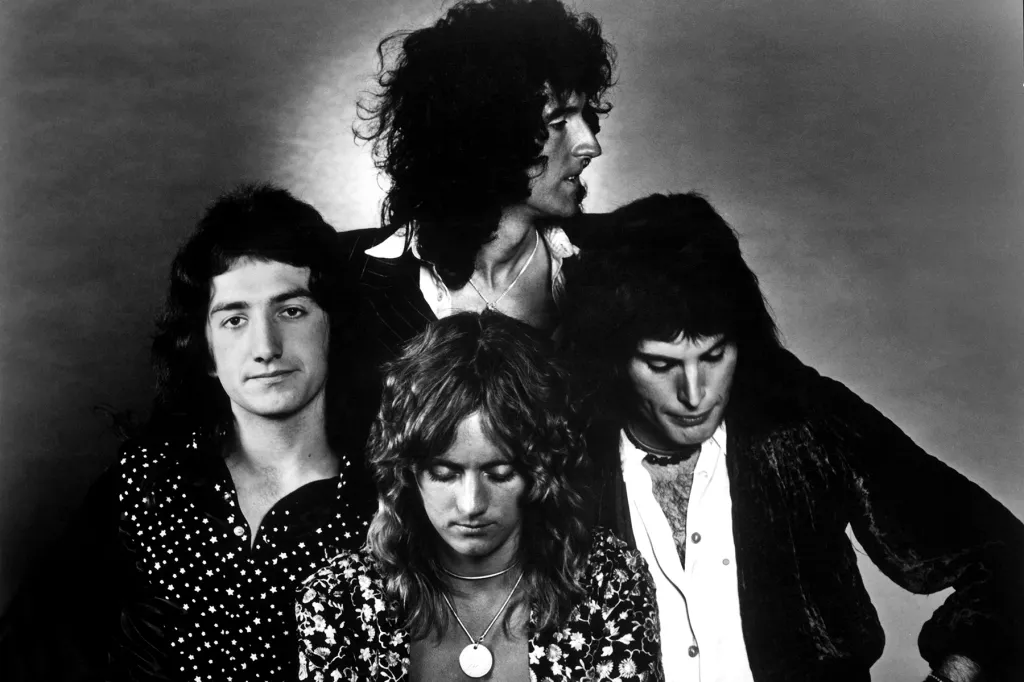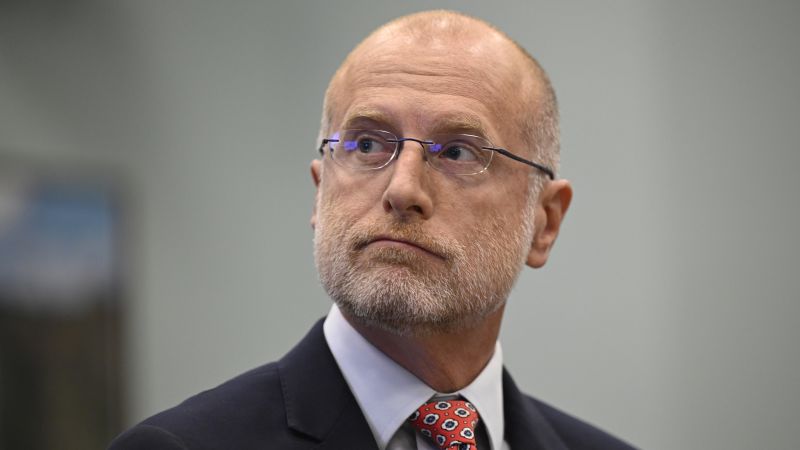
It reached No. 9 in April 1976. Queen had narrowly missed the top 10 when its breakthrough hit “Killer Queen” peaked at No. 12 in May 1975.
The strong showing for “Bohemian Rhapsody” came despite its unconventional style and its length (5:50). It was the longest song to make the top 10 since Elton John’s “Someone Saved My Life Tonight” (6:45) eight months earlier.
“Bohemian Rhapsody” was Queen’s first No. 1 U.K. hit. “Killer Queen” had peaked at No. 2 in the band’s home country. Its nine-week run on top was the longest since Paul Anka’s “Diana” ruled the roost for nine weeks in 1957.
Improbably, “Bohemian Rhapsody,” with its opt-repeated phrase “mamma mia,” was replaced at No. 1 on the U.K. chart by ABBA’s “Mamma Mia.”
Queen was nominated forbest pop vocal performance by a duo, group or chorus, but lost to Chicago’s “If You Leave Me Now.” Queen was also nominated for best arrangement for voices (duo, group or chorus) but lost to Starland Vocal Band’s “Afternoon Delight.”
These losses may seem like head-scratchers today, but here’s some historical context: Both “If You Leave Me Now” and “Afternoon Delight” had been No. 1 hits on the Hot 100. As noted, “Bohemian Rhapsody” had peaked at No. 9. Also, “If You Leave Me Now” was Chicago’s first No. 1 hit following 10 top 10 hits that had fallen short of the top spot. And the ballad represented a new musical direction for the group.
Both the Chicago and Starland Vocal Band hits received Grammy nods for record of the year. “Bohemian Rhapsody” did not. So, the Grammy shut-out for “Bohemian Rhapsody” wasn’t considered an upset at the time, though the song is obviously considered more of a classic today than either of those other hits. As noted above, “Bohemian Rhapsody” has been voted into both the Grammy Hall of Fame and the National Recording Registry. The Chicago and Starland Vocal Band hits have yet to receive either accolade.
“Bohemian Rhapsody” was featured on Queen’s fourth album, A Night at the Opera. The album was titled after a 1936 movie by the legendary comedy troupe, The Marx Brothers.
The band’s next album, A Day at the Races, was also titled after a Marx Brothers movie. And here, the plot thickens: A Day at the Races was the Marx Brothers’ follow-up film to A Night at the Opera. Queen could have kept this going a little longer by titling their next album Room Service, after the film which came next in the Marx Brothers filmography, but the band went with News of the World instead.
The magazine’s review of A Night at the Opera, which ran in its April 2, 1976 issue, didn’t even mention “Bohemian Rhapsody,” instead singling out “The Prophet’s Song” as the album’s standout track.
The magazine has since paid the song more notice. In 2004, the song ranked No. 163 on the inaugural Rolling Stone 500 Greatest Songs of All Time list. It dipped just a few spots to No. 166 on the 2010 revision but then zoomed to No. 17 on the 2021 update (which followed the release of the hit biopic Bohemian Rhapsody). On the most recent revision of the list in 2024, it held its ground at No. 17 – making it the fourth-highest-ranking track from the 1970s, following Marvin Gaye’s “What’s Going On” (1971), Fleetwood Mac’s “Dreams” (1977) and Stevie Wonder’s “Superstition” (1972).
Here’s what Rolling Stone had to say about the track in the latest update: “ ‘Bohemian Rhapsody’ contains a reported 180 vocal parts and spans rock, opera, heavy metal, and pop — all in six minutes. … Recording technology was so taxed by the song that some tapes became virtually transparent from so many overdubs, but Queen had created something that embodied the absurd tragedy and humor of human existence.”
Rolling Stone’s Brian Hiatt wrote a detailed (and highly recommended) history of the song in its current digital exclusive issue. The article is titled “Bohemian Rhapsody’ at 50! Brian May and Roger Taylor on Queen’s Masterpiece.”
It returned to No. 1 on the Official U.K. Singles Chart on Dec. 21, 1991, less than a month after Mercury’s death on Nov. 24. It logged five weeks in the lead, on top of the nine weeks it spent on top in its first run, making it one of only six songs to log 14 or more cumulative weeks at No. 1 in the U.K. The others are Frankie Laine’s “I Believe” (18 weeks in 1953), Bryan Adams’ “(Everything I Do) I Do It for You” (16 weeks in 1991), Wet Wet Wet’s “Love Is All Around” (15 weeks in 1994), Drake feat. Wizkid and Kyla’s “One Dance” (15 weeks in 2016) and Ed Sheeran’s “Shape of You” (14 weeks in 2017).
In the U.K., the Christmas Number 1 – the song that heads the Official U.K. Singles Chart during Christmas week – is a big deal. “Bohemian Rhapsody” is the only hit to earn that title twice – in 1975 and again in 1991.
It reached No. 2 after it was featured in Wayne’s World in 1992 and No. 33 after it was featured in the biopic Bohemian Rhapsody in 2018. Discounting songs that make seasonal resurgences every Christmas or Halloween, very few tracks have made three separate trips to the top 30. Prince’s “1999” is one. The song reached its No. 12 high in July 1983. In January 1999, it spent a week at No. 40, as people partied not just like it was 1999, but because it actually was. Most recently, the song rose to No. 27 in May 2016, following Prince’s death that April.
All three were featured in film or TV projects. The R&B group The Braids took the song to No. 42 in 1996 (from High School High). The Glee Cast took it to No. 84 in 2010 (from the Fox TV series, then at its peak). And Panic! at the Disco took it to No. 64 in 2016 (from Suicide Squad).
“Weird Al” Yankovic’s 1993 album Alapalooza included a version of the song entitled “Bohemian Polka”, which is a rearrangement of the song as a polka. The album reached No. 46 on the Billboard 200 and went gold.



